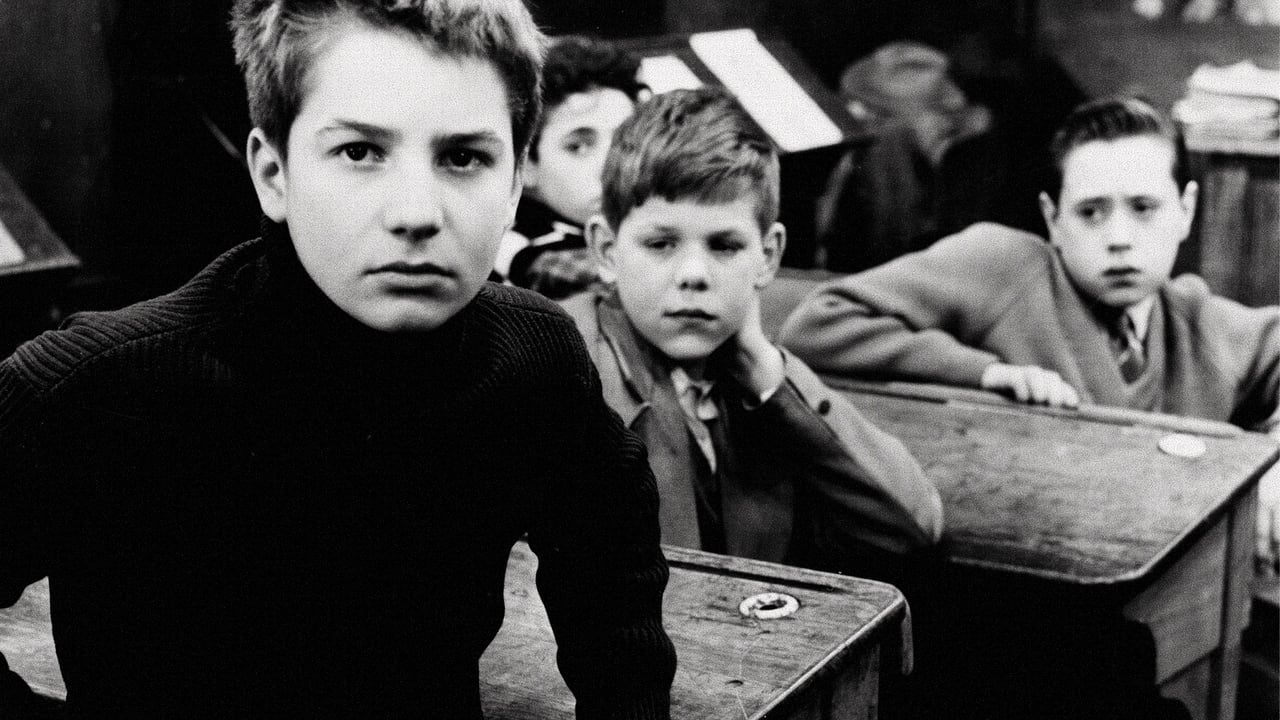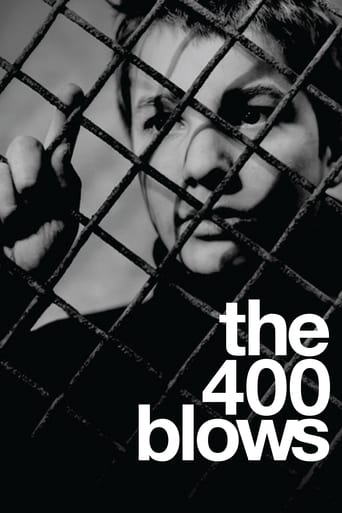

Instead, you get a movie that's enjoyable enough, but leaves you feeling like it could have been much, much more.
... View Moreif their story seems completely bonkers, almost like a feverish work of fiction, you ain't heard nothing yet.
... View MoreAmazing worth wacthing. So good. Biased but well made with many good points.
... View MoreOne of the most extraordinary films you will see this year. Take that as you want.
... View MoreTHE 400 BLOWS is a French drama about childhood and growing up under very difficult family and social circumstances. The main protagonist is a boy, who was faced with a lack of understanding by his own family and teachers at school. His French teacher is the embodiment of terror and incomprehension. His mother and stepfather, because of work and irregular life, do not have time for her only son. The boy began to run away from home and deal with petty crimes...The story is incredibly realistic, clear and honest. Deviation from the traditional narrative is more than obvious. Mr. Truffaut has introduced realistic social and family situations. These situations have offered insight into one emotional confusion and painful agony. It is difficult to describe with words. The boy leads an inner struggle, that moves him away from the school and parents. The story contains some of the director's autobiographical moments and intimate experiences from his youth. Because of that, an image of Paris and a musical score are quite sad. Certain critiques of education or perhaps social incompetence is the point of this movie. Jean-Pierre Léaud as Antoine Doinel is a realistic and simple character. The boy, who does not provoke sympathy. A vulnerability and naivety of his character are amazing. His honesty, while a psychiatrist attempts to fathom reasons for his discontent is almost heartbreaking. His support is Patrick Auffay (René Bigey) as his best friend and accomplice in the crime.Claire Maurier as Gilberte Doinel is quite superficial and deceptive character in the role of Antoine's mother. Albert Rémy as Julien Doinel is a confused and unfulfilled Antoine's stepfather. Guy Decomble as Sourpuss He is an indifferent and insensitive teacher.This is a small and very interesting masterpiece. Very important drop in the French New Wave.
... View MoreWhat a dreadful disenchantment! What a shame of life! What a pity of parents! Sorry boy, it is not your entire fault: your school mates also want to run away from those 'chaotic' kind of teachers and miserable classroom. You are not the only one willing to do it, although your brightness looks like missing from your head-box and it is probably in your 'bollocks'. The educated ones once said: "the apple does not fall far from the tree", so Antoine darling, do not expect too much from this life, because it was your mother who drew your path since she gave you birth. What is more, did not you see her kissing that disgusting guy whilst crossing the pedestrian crossing? She does not give you money, she is not even interested in what you are studying at school... What kind of mother is that!? Yes, but do not forget to throw the garbage away...Ah, right, I understand. Only when you missed things up she comes to you and says "if you do this, I will give you that". Oh, come on! But even so, after all your 'minor effort' in Honoré de Balzac to get better marks, here comes the other nuts scatterbrained tutor and throws away all your effort. Even I would not make any effort to study in that case.However, remember that you have a treasure, which name is 'René'. Such a lovely friend, always helping and giving the most accurate advice. What a bad luck at the end, though, when he could not visit his friend Antoine, after a long journey with the bicycle. But, at any rate, Antoine is a good kid. When he has to take away the garbage he does it. When he has to study, he also does it. Even when his tutor tells him off and orders him to clean or do anything, he is listening! Let us not forget that after stealing the typewriter, it was him who decided to go back and leave it from where he took it, and it was not his Chicken-René-friend. I truly believe that François Truffaut wanted to show us the 'lack of child guidance' combined with the unhappy home life, Antoine's mistakes and his behavior towards the consequences. This movie reminded me of both Billy Elliot and Forrest Gump, given the fact that all characters are running towards desperate destinations, in a crucial time of their lives. I enjoyed the movie and the French expressions, but I disagree that this movie is better than Ben-Hur (1959) or Strangers on a Train (1951).
... View MoreThrough this film, I got an idea of the beautiful old French town and of the life that children lived mid-20th century. How many psychological problems evident in this canvas ... Looking at it I realize how many create one psychologist and psychiatrist profession for half a century ... I'm sure we lucky to be born in the current years, and our children are lucky more, and even more grandchildren. Let's think about what role can play this pattern, if it is to watch most of the people of the future: - For a positive effect, it is necessary to show in the ripened age, then people will be able to sympathize with the previous generations ... - It can be seen in the infinite power of the unconscious and desire for freedom ... - Our desire to deeply pledged to go beyond and take the life under our cap.
... View MoreGood movie, but hardly brilliant or a classic.A boy, Antoine Doinel, is often in trouble at school and doesn't get along with his parents, especially his mother. He briefly runs away from home but then returns (or is returned...). After a while he ups the ante and turns to petty crime...Interesting drama. It also has its lighter side. There are many moments of comedy - the scene with the gym teacher taking the class for a walk was priceless! However, hardly the classic this is made out to be. Directed by Francois Truffaut, this is regarded as being the vanguard of the French New Wave movement. But it really isn't THAT good. It is hardly profound - the plot is a few weeks/months in the life of a early/mid-teens boy. There is no big realisation at the end, or plot closure.Even as a character-based film it is not fantastic. Yes, you feel some empathy for and engagement towards the boy but he is more villain than hero. (The adults are hardly saints either, I might add).Worth watching though, as it is a reasonable story, and to see what all the fuss is about...
... View More